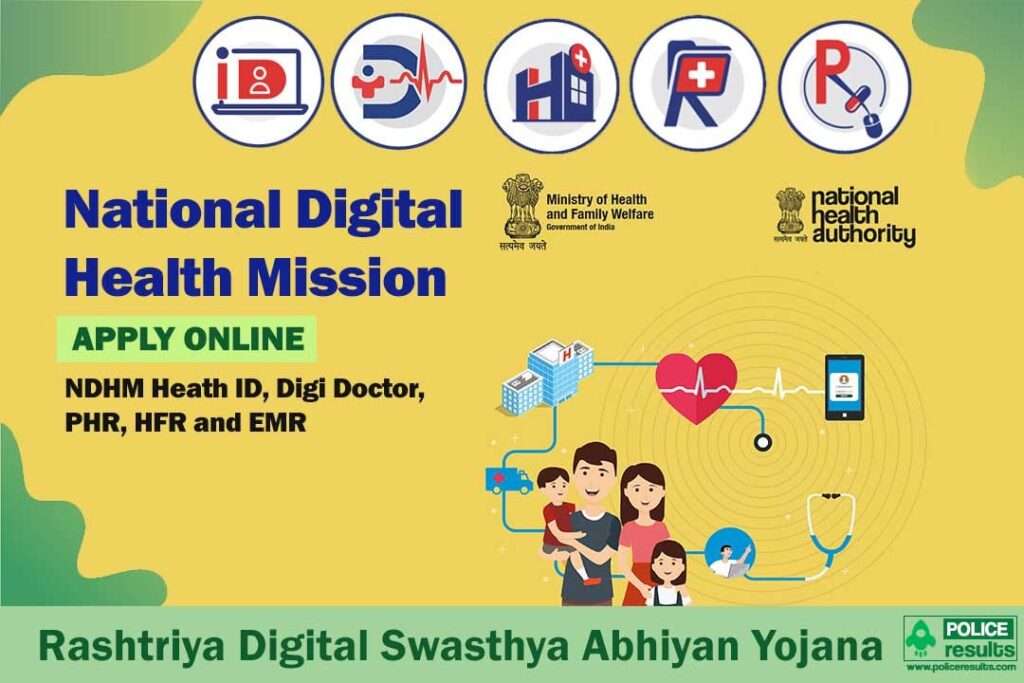In a landmark move to modernize India’s healthcare infrastructure, the Ministry of Health and Family Welfare officially launched the National Digital Health Mission (NDHM) across all states on Friday. This ambitious initiative aims to digitize health records, enhance data accessibility, and improve the overall efficiency of patient care in both rural and urban areas.
The NDHM, which had undergone pilot runs in six Union Territories since 2020, will now provide citizens with a unique Digital Health ID, allowing doctors and healthcare providers to access patients’ medical history with consent. The initiative is expected to significantly reduce paperwork, minimize diagnostic errors, and enable timely treatment decisions.
A Game-Changer for India’s Healthcare
Union Health Minister Dr. Mansukh Mandaviya said during the launch, “This mission marks a transformational shift in how healthcare will be delivered in India. With Digital Health IDs, we are creating an integrated ecosystem where citizens can have seamless access to healthcare services across the country.”
According to official figures, over 40 million Digital Health IDs have already been generated during the pilot phase. The government is targeting to enroll at least 500 million citizens by the end of 2025, especially from underserved regions.
Key Features of the NDHM
The mission includes several key components:
- Digital Health ID for every citizen
- Personal Health Records (PHR) that are easily accessible and shareable
- Healthcare Professionals Registry (HPR)
- Health Facility Registry (HFR)
- e-Hospital systems integrated with Ayushman Bharat Digital Mission (ABDM)
Patients can access their records through a secure mobile app, while healthcare providers will have access only with the individual’s consent, ensuring privacy and data protection.
Industry and Public Reception
Healthcare experts and tech leaders have applauded the initiative. Dr. Devi Shetty, renowned cardiac surgeon and founder of Narayana Health, commented, “This is a historic step. Just like UPI revolutionized digital payments, NDHM can revolutionize healthcare delivery if implemented properly.”
However, data privacy advocates have raised concerns about the security of sensitive health data. “We urge the government to ensure strict encryption and data privacy norms under the Digital Personal Data Protection Act, 2023,” said Anja Mehta, a digital rights activist.
Bridging the Urban-Rural Gap
One of the major challenges the mission hopes to address is the urban-rural divide in healthcare services. With more than 65% of India’s population living in rural areas, digital health infrastructure can empower primary health centers and mobile clinics with accurate data, saving time and resources.
The government has allocated ₹3,000 crore in the Union Budget 2025-26 to expand digital health infrastructure, including high-speed internet access in rural clinics, training for medical staff, and integration with public health schemes like Ayushman Bharat.
Looking Ahead
While the NDHM promises to streamline healthcare delivery, its success depends heavily on public adoption, data security, and continuous infrastructure development. Experts stress that collaboration between government bodies, private hospitals, and technology providers will be critical in realizing the full potential of this mission.
As India takes this digital leap, the NDHM could become a blueprint for other developing nations aiming to digitize their health ecosystems—offering every citizen timely, affordable, and personalized care.



